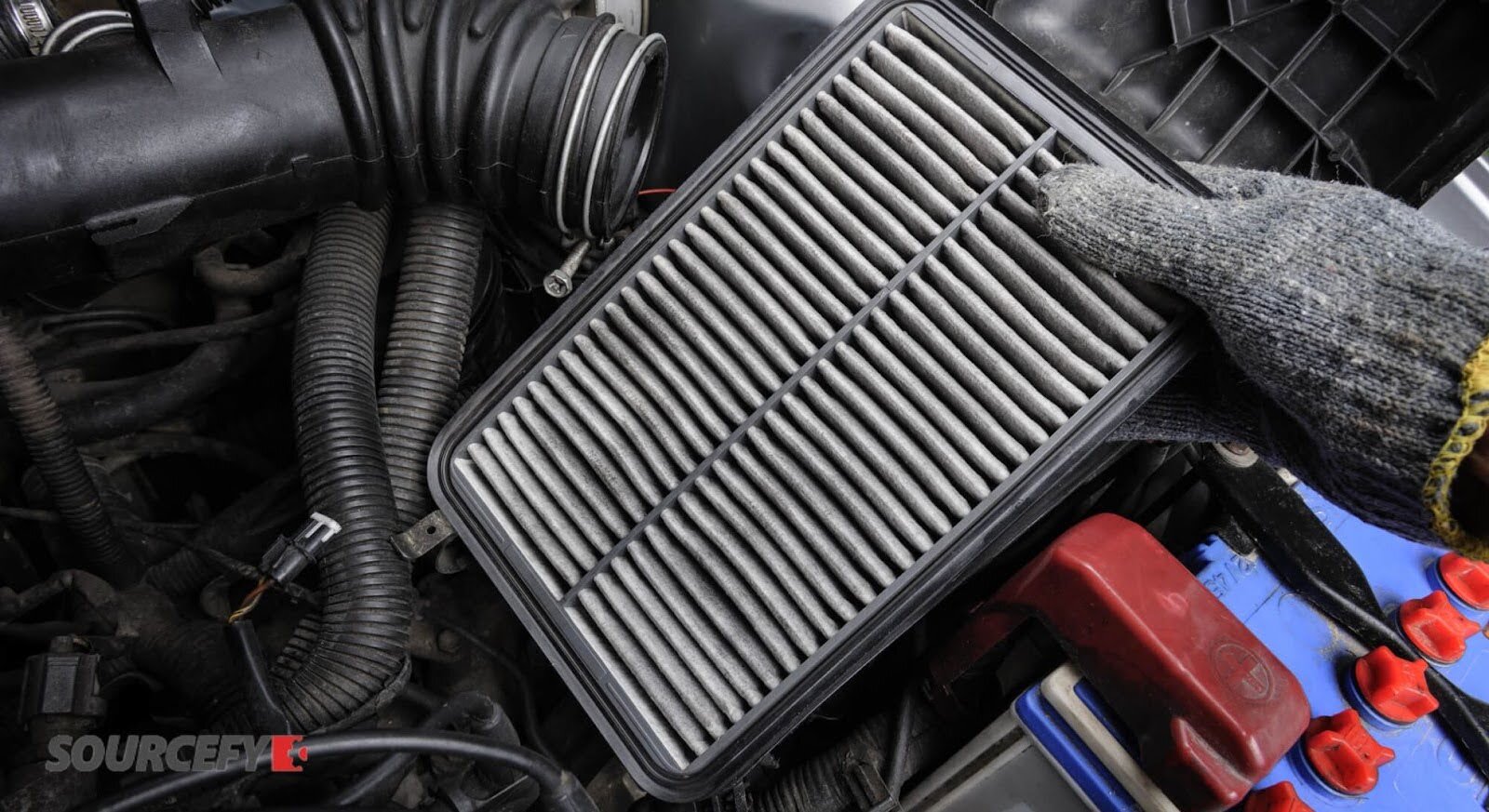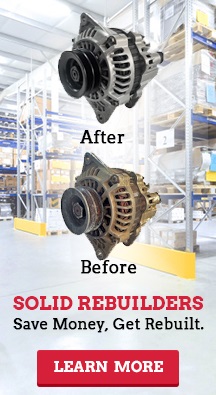Categories
Air
A Comprehensive Guide for Forklift Air Filters
Keeping your forklift running smoothly requires attention to many components, with the air filter being one of the most crucial. A clean air filter ensures that your forklift's engine breathes easily, improving fuel efficiency and performance.
This guide focuses on understanding the role of air filters in maintaining the health of forklifts across various brands, including Toyota. While we discuss these essential parts, we'll keep our advice practical, aiming to enhance your maintenance routine without pushing products directly.
What are Forklift Air Filters?

These air filters are essential components designed to trap dust, debris, and other airborne particles before they can enter the engine. By filtering the air, they protect the engine from abrasive materials that can cause wear and damage over time. This ensures the engine operates efficiently and extends its lifespan.
These filters come in various types, such as paper, foam, and reusable options, each suited for different environmental conditions. Regularly replacing and maintaining filters is crucial for optimal forklift performance, preventing potential engine problems and maintaining air quality for the engine's combustion process.
Types of Air Filters

Forklifts utilize a variety of air filters to ensure that the engine receives clean air, which is crucial for optimal performance and longevity. Here's a more detailed look at the types of air filters available:
-
Paper Filters
The most commonly used air filters in forklifts are made from pleated paper. This design effectively traps dust, pollen, and other particulates from the air before they can enter the engine.
Paper filters are generally disposable and should be replaced regularly to maintain engine efficiency and prevent any potential airflow blockage.
-
Foam Filters
Foam filters are preferred for operations in dustier or more particulate-rich environments due to their denser composition, which allows them to capture more and finer debris.
These filters are often used alongside paper filters to enhance filtration efficiency. Depending on the operating conditions, foam filters can be cleaned and reused a few times before replacement.
-
Reusable Filters
Reusable air filters are designed for longevity and durability. They are made from synthetic materials like polyester fibers that can withstand repeated cleaning and re-oiling.
These filters are more eco-friendly and cost-effective over time as they do not require frequent replacements. However, they must be maintained properly to ensure they perform effectively without compromising a
Signs of a Need for Replacement

Recognizing when an air filter needs replacing is key to maintaining engine performance and health. Here are some clear symptoms that indicate it's time to check and potentially replace the air filter:
- Decreased Engine Performance: If the forklift starts to exhibit signs of reduced power or sluggish response, it could be due to a clogged air filter limiting the amount of air reaching the engine.
- Excessive Fuel Consumption: A dirty air filter can force the engine to work harder, which in turn consumes more fuel than usual. Monitoring the fuel usage can help in identifying this issue.
- Visible Dirt and Clogging: Regular inspections might reveal that the air filter is visibly dirty or clogged with debris. If light cannot pass freely through the filter, it's a definite sign that replacement is necessary.
- Unusual Engine Sounds: A starved engine may produce popping or coughing sounds, which are sometimes caused by an inadequate air supply caused by a blocked air filter.
- Black Smoke or Flames Exiting the Exhaust: Impurities in the air can lead to incomplete combustion, evidenced by black smoke or even flames exiting the exhaust system.
Impact of a Worn-Out Filter on Forklift Performance and Engine Health
Using a worn-out air filter can significantly impair the forklift's operation and damage the engine over time:
- Reduced Engine Life: Continuous operation with a dirty filter increases engine wear and tear due to dirt particles entering the engine, potentially leading to premature engine failure.
- Operational Inefficiency: With blocked airflow, the engine cannot perform efficiently. This inefficiency manifests in reduced power output and increased operational costs due to higher fuel consumption.
- Increased Maintenance Costs: Frequent engine troubles and breakdowns driven by poor air intake can escalate maintenance expenses.
- Potential Engine Repairs: Long-term use of a clogged air filter may lead to serious engine problems requiring costly repairs or even complete replacements.
Maintenance Tips

Effective maintenance of air filters is crucial for optimal forklift performance. Here are streamlined best practices:
- Regular Checks: Inspect the air filter regularly, adjusting frequency based on your operational environment, more often in dusty areas.
- Follow Manufacturer's Recommendations: Adhere to the prescribed filter inspection and replacement schedule to avoid performance issues.
- Proper Cleaning: For reusable filters, clean according to the manufacturer's instructions to avoid damage.
- High-Quality Replacements: Always replace with high-quality filters to ensure efficiency and engine health.
- Keep Records: Maintain logs of filter changes to help manage future maintenance schedules.
- Training: Ensure all staff know the importance of air filter maintenance and the procedure.
Conclusion
Maintaining the air filter in your forklift is a fundamental aspect of ensuring its longevity and operational efficiency. Whether using a standard air filter, a Toyota forklift air filter, or exploring other air filters, consistent care and timely replacements are key to preventing engine problems and costly downtimes.
By adhering to the outlined maintenance best practices and understanding the signs that indicate the need for filter replacement, you can keep your forklift running smoothly in any environment.
The health of your forklift's air filter directly impacts its performance, making regular checks and quality replacements integral to your maintenance routine.
Frequently Asked Questions
What is the Purpose of a Forklift Air Filter?
A forklift air filter traps dust, dirt, and debris from the air before it enters the engine. Using a high-quality air filter protects the engine from contaminants that can cause damage, ensuring better performance and longer engine life.
How Often Should I Replace My Toyota Forklift’s Air Filter?
The replacement frequency of a Toyota forklift air filter depends on the operating conditions. In clean environments, inspect and replace it annually. However, in dusty or dirty conditions, check the filter monthly and replace it every 3 to 6 months to ensure optimal engine efficiency.
Can Air Filters For Forklift Engines be Reused?
Some air filters for forklift engines are reusable, especially those made of foam or synthetic materials. These filters can be cleaned and re-oiled to extend their life. However, disposable paper filters must be replaced when they become clogged or dirty to maintain engine performance.
What Happens If I Don't Change My Forklift Air Filter Regularly?
Neglecting to change your air filter can lead to restricted airflow, causing the engine to overwork and consume more fuel. This can result in reduced performance, higher maintenance costs, and potential engine damage, affecting the overall efficiency of your forklift.
 Loading... Please wait...
Loading... Please wait...



